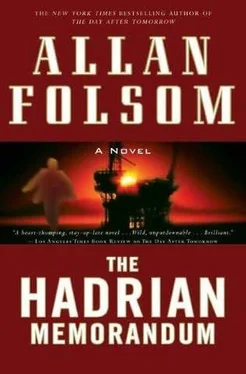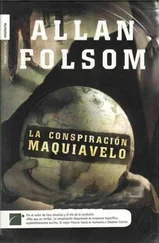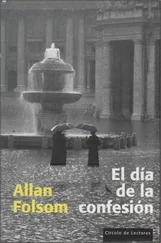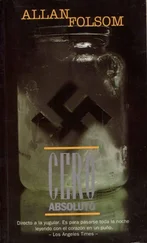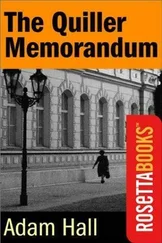He plunked down on the edge of the bed. “What are we supposed to do while we wait for the police to go their merry way?”
“Turn on the television. Maybe you can learn what they’re doing. If they’re checking passengers leaving from airport, bus, and train terminals. If they’re searching cars leaving the city.”
“I don’t speak German.”
“You’ll get the idea. It’s television, it’s not that hard.”
“What are you going to do?”
“Take a shower.”
“A shower?” Marten was incredulous.
“Most of last night was spent on an airplane. Today was spent chasing after you. I have the feeling tonight is going to be pretty damn long as well. So if you don’t mind, I’d like to get cleaned up before it begins.” Abruptly she went into the bathroom and closed the door.
“How do you know I won’t just leave?” he called through it.
“Because I’d call the police if you did.”
“They’d get you, too.” There was no reply.
He raised his voice. “I said they’d get you, too.” Still no reply.
Then he heard the shower running.
6:25 P.M.
6:37 P.M.
Marten was sitting in a chair staring at the television when the bathroom door opened and Anne came back into the room, her dark hair twisted up in a towel, a thick white terrycloth robe pulled around her, her eyes on the TV screen.
“Did you learn anything?” she said.
Marten said nothing, just continued to watch the screen. She took a step closer. Whatever channel he was tuned to was broadcasting live remotes, cutting between stand-up reporters on the green of the Platz der Republik, the Brandenburg Gate, and Polizeipräsidium Berlin, police headquarters, on Platz der Luftbrücke. An on-camera correspondent outside of the Polizeipräsidium suddenly put a hand to his earphone, as if listening to a special instruction from the studio, then quickly gave an introduction to whatever was next. The video feed abruptly cut to a media room somewhere inside the building where a tall, steely, black-eyed man with a shaved head, wearing a black leather jacket, white shirt, and a tie, approached a bank of microphones.
“Ever hear of a Berlin detective called Hauptkommissar Emil Franck?” Marten asked without looking at her.
“No.”
“Well, that’s him. A few minutes ago I saw him on a video that was recorded at the Platz der Republik. He seems to be their top homicide cop and is heading the investigation.”
“What have they said so far?”
“That I’m the guy they’re looking for.”
“What?” Anne was flabbergasted.
“At least as far as I can tell.”
“How can they know for sure? All they had was a description.”
“Somebody took my picture with a cell phone.”
“Christ!”
“Amen.”
“Do they have your name?”
“If they do, they haven’t said.”
Hauptkommissar Franck reached the microphones and looked directly into the camera. He spoke first in German and then in English and in a voice that was icy and without emotion.
“This is the man wanted for questioning in the tragic and shocking daylight murder of Theo Haas. We are asking the public’s help in finding him.”
A blurry image of Marten in the melee near the Brandenburg Gate popped on the screen. Franck’s voice was heard giving a telephone number and e-mail address.
“Recognize me?” Marten’s concentration was on the TV.
“Unfortunately, yes.”
Immediately the same phone number and e-mail address appeared on the screen. After a long moment the picture faded to black. Several seconds later a photograph of Theo Haas appeared. Superimposed over it were the words VERBRECHEN DES JAHRHUNDERTS.
“Crime of the century,” she translated. “Crime of the fucking century.”
Marten turned to look at her. “For some reason I don’t think the rather generous bribe you gave the taxi driver who brought us here is going to be enough to keep him from suddenly going to the police.”
“Neither do I.”
Marten stood up quickly. “It’s only a matter of time before they show up here. If I leave now, go out the back entrance the way we came in, you can deny it all. Tell them you met me on the plane from Bioko, we did a little flirting, and you followed me to Berlin for the fun of it. You had no idea I was going to meet with Theo Haas, let alone be around when he was killed. Moreover, you can describe the real killer to them. You know what he looked like as well as I do. Others had to have seen him, too, people the police may have already questioned and you can bring that up, it’ll give you credibility. You’re a wealthy American who sits on the board of a large Texas oil company. They’re not going to do much of anything to you, especially once you convince them you just got caught up in an unfortunate coincidence and have no idea where I’ve gone. And it’ll be the truth because you won’t.”
“It won’t work.” Anne was looking directly at him.
“Why? In ten seconds I’m out the door and vanished.”
“Not without me.”
Marten glared at her. “Don’t start that again, not now. Not with this Hauptkommissar Franck on the trail. You get caught with me, you’ll be locked up for as long as I am.”
“I want the photographs, Mr. Marten. I’ll take my chances. Besides, as I said, there may be a way out of this yet, but you’ll need me or it won’t happen.”
“How?”
“As my mother used to say, that’s for me to know and you to find out.”
Marten watched her carefully, then gave in. “Once again, I seem to be at your mercy.”
“Then let’s get to it.” Immediately she dug in her suitcase, pulled something out, and tossed it to him. “It’ll help cover you up. A little anyway.”
Marten caught it and looked at it-a Dallas Cowboys baseball cap.
He looked at her as if she were crazy. “This isn’t going to help.”
“It’s better than nothing, darling. Now collect your things, take a pee, and we’ll get the hell out of here.”
Abruptly Anne threw off her robe. Marten saw a flash of taut body, beautiful breasts, and pubic hair, and then she was pulling on underwear, jeans, sweater, and the jeans jacket and running shoes she’d worn earlier.
Three minutes later they were walking out the Hotel Adlon’s rear entrance, then turning onto Wilhelmstrasse in the direction of Unter den Linden and the Spree River. Marten wore the Dallas Cowboys cap and pulled his suitcase behind him like a tourist. Anne carried an over-the-shoulder bag taken from her luggage. In it were last-minute basics: clean underwear, toiletries, passport, credit cards, money, BlackBerry. Her suitcase had been intentionally left in the room with the rest of her clothes, making it look as if she fully expected to return.
7:07 P.M.
HOTEL ADLON KEMPINSKI, OFFICE OF THE CONCIERGE. 7:28 P.M.
“We have over three hundred rooms and seventy-eight suites. It is not possible to know the physical description of every guest.” Paul Stonner, the Hotel Adlon’s proud, dark-suited, bifocal-wearing concierge, stood across from the shaved-headed, six-foot-six Erster Kriminalhauptkommissar Emil Franck in his private office. With Franck were his colleagues Kommissars Gerhard Bohlen and Gertrude Prosser. Bohlen was forty-one, skeleton thin, deadly serious, and married. Prosser was thirty-eight, a sturdy, handsome blonde whose only marriage was, and always had been, to the department. Gerhard and Gertrude. Franck often referred to them as “the two Gs.” Both were top homicide investigators.
“Herr Stonner,” Franck said coldly, his coal-black eyes barely pinpoints in his head, “you are going to bring your employees in here, and we are going to do our best to find a match. Our man here will describe them exactly as he has to you and to us.”
Читать дальше
